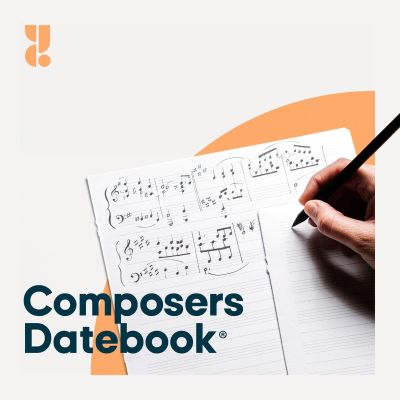Composers Datebook™ is a daily two-minute program designed to inform, engage, and entertain listeners with timely information about composers of the past and present. Each program notes significant or intriguing musical events involving composers of the past and present, with appropriate and accessible music related to each.
Johann Strauss and Philip Glass in 3/4 time
Webster's defines a waltz as "a gliding dance in 3/4 time." But for most people, THIS music defines "waltz." It's the "Blue Danube" by Johann Strauss, Jr, first performed on today's date in 1867 at a Carnival concert of the Men's Choral Society of Vienna. The society's "house poet," one Joseph Weyl, a police officer by profession, provided the words for the original choral version of the "Blue Danube" Waltz. It was a flop, and even the choral society urged officer Weyl not to quit his day job. Strauss sold the rights to his waltz to a Viennese publisher—and six months later regretted it. At the 1867 World's Fair in Paris, the "Blue Danube Waltz" became an international hit and soon became the unofficial National Anthem of Vienna. In 1963, the American pianist and composer Robert Moran found himself in Vienna, where he heard the strains of an unfamiliar waltz melody coming though the open door of the Bösendorfer Piano Company. Moran's Viennese friends assured him that, yes, there were still composers writing brand-new waltzes. Intrigued, Moran tried his hand at it himself, and soon was asking his composers friends to give it a try. The result was "The Waltz Project," a collection of 25 short waltzes by famous and not-so-famous contemporary composers published in 1978. Philip Glass's contribution, for example, was entitled "Modern Love Waltz".
